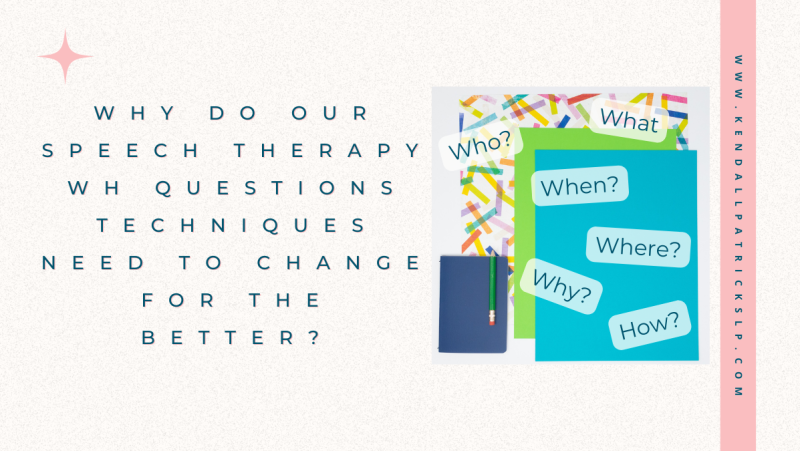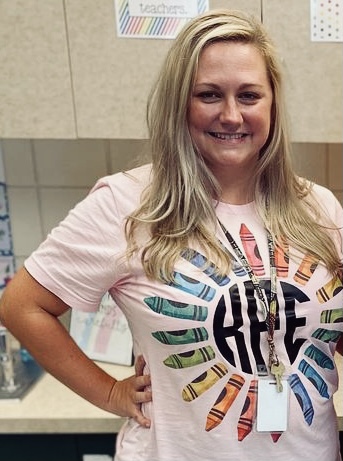Speech therapy WH questions… we see this as a goal for our kiddos often, but are we addressing it like we should? WH questions for speech therapy include a lot more skills than it may seem like at first and we need to make sure we are helping our students learn and build on these skills so they can successfully meet their speech therapy WH questions goals. I’ve included some of my favorite speech therapy WH questions activities, parent education for speech therapy WH questions, and goal writing ideas to help you get started.
To sign up to receive all of my freebies, growing all the time, enter your info below!
Speech Therapy WH Questions
Did you know that children start to be able to answer simple WH questions as early as 1-2 years old? At first, this seemed crazy to me, especially when I think about how many of my students struggle with these questions. But then I thought about my own children and their development and yes! They did start to answer simple who and what questions (e.g., “Who is that?” and “What does the dog say?” at those young ages. Which is so cool! Sometimes typical language development just blows my mind!
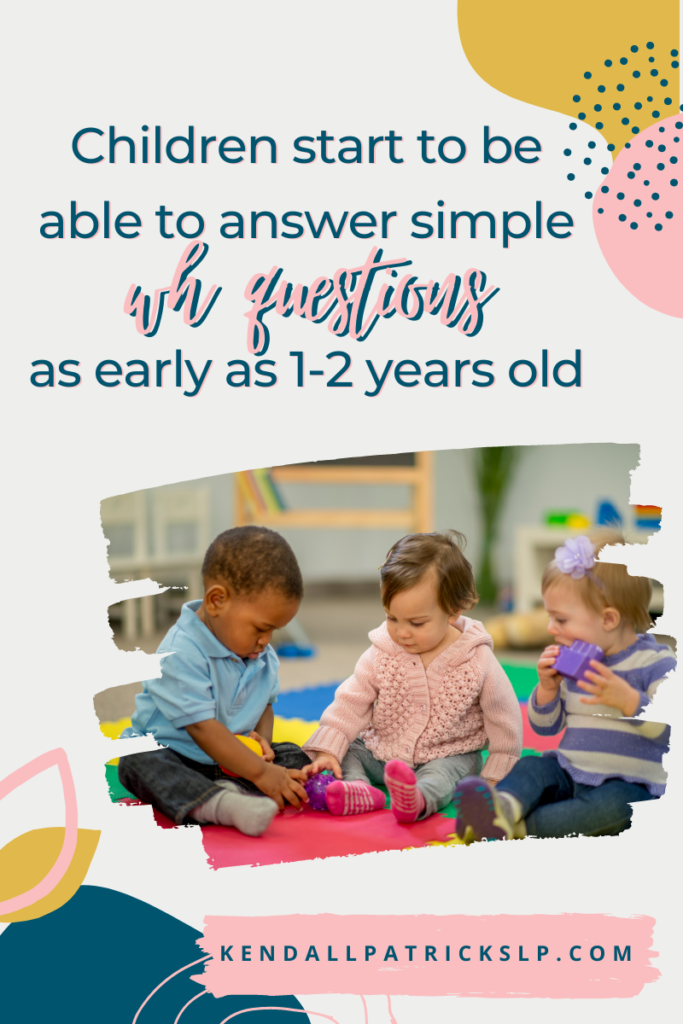
Let’s look at a quick breakdown of the different types of WH questions.
Who Questions for Speech Therapy
Who questions are used to ask about people or a character (which could be a person, animal, or a thing – depending on the story). It is important that we teach our students how to answer these questions and let them know that their answer should be a person/people. To answer a variety of who questions, a child will need quite a large/varied vocabulary – for example they may need to know occupations, family member titles, pronouns, etc.
What Questions for Speech Therapy
What questions are used to ask about something or a function. For example, “What is a…” or “What does a ___ do?”
Where Questions for Speech Therapy
Where questions are used to ask about a place. In order to answer these questions, children will not only need to know about locations (e.g., sky, farm, ocean) but will also need to know and use prepositional phrases (e.g., in th ___, on the ___, under the ____, beside the _____).
When Questions for Speech Therapy
When questions are used to ask about time. Children will need to learn a variety of time concepts to be able to answer when questions. For example, times of day, seasons, months, dates, holidays, before/after, etc.
Why and How Questions Speech Therapy
These can be more difficult and are usually addressed a little later on, when our students are ready for these higher level language tasks. (This doesn’t mean we can’t model and expose our children to these early as well though!)
Why questions are used to ask about a reason and require an explanation (usually a lengthier answer).
How questions can be qualitative – which are used to ask to describe something (e.g., “How does that character feel?” “How does a ____ look/taste/smell etc.?) or procedural – used to ask the steps to complete a task (e.g., “How do you build a snowman?).
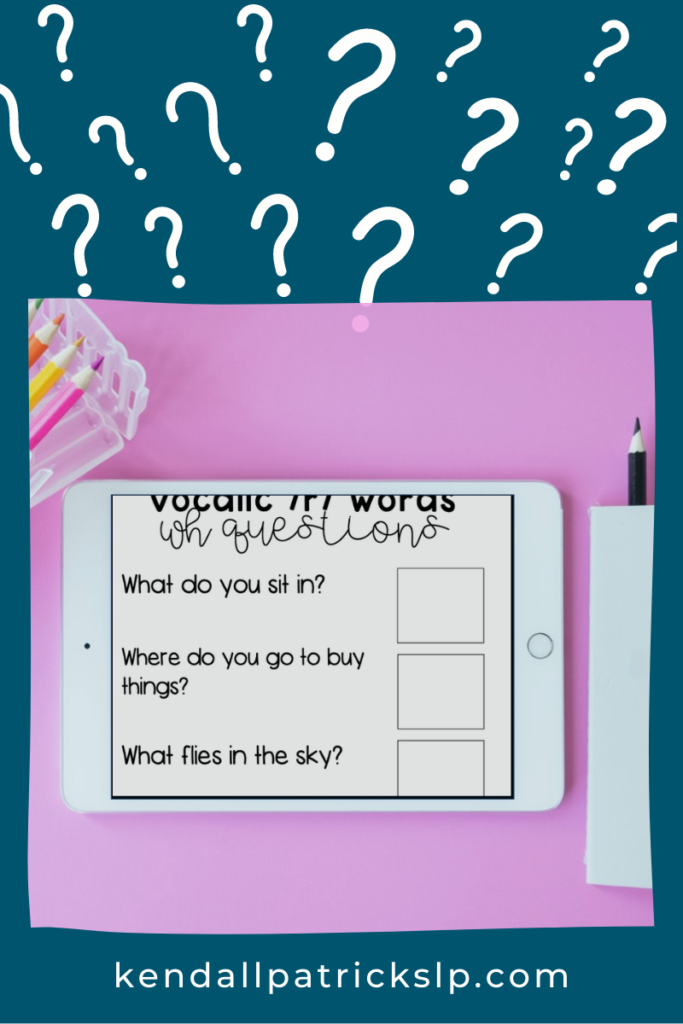
Speech Therapy WH Questions Goals
A lot of us write and work on “wh” question goals in therapy quite frequently. One mistake I see a lot when reading these goals is that they are too open-ended and not specific enough. There are so many different types of “wh” questions as well as ways to teach them. I like to initially write my goals to work on one or two types (e.g., “who” and “what” as they are earlier to develop) in the context of a thematic unit. So specifically teaching types of answers to who and what questions and the vocabulary needed. Then I move on to where, when, why, and how – as these are more complex and can have different types of answers as well. For example, “where” answers can be specific locations (e.g., Florida, grocery store) or prepositional phrases (e.g., under the chair). How questions are typically the most complex and include other needed language skills as well such as describing (e.g., “How does it feel?”) or sequencing (e.g., “How do you build a snowman?”).
Basic WH Question Goal
- During structured therapy tasks, STUDENT will answer “who” and “what” questions related to a thematic unit with 80% accuracy as measured by therapy data and observations.
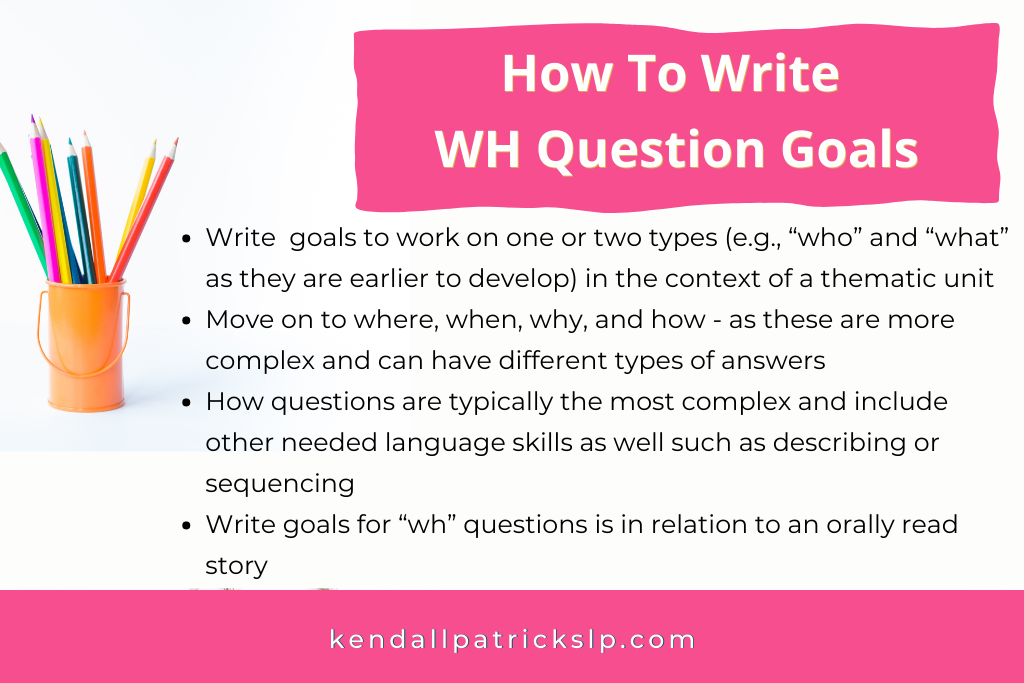
For more sample goals, check out my growing goal bank in my freebie library.
Higher Level WH Question Goals
Another way I work on and write goals for “wh” questions is in relation to an orally read story. I typically work on these skills within a unit to address story narrative goals as well.
Here are some examples of these types of “wh” questions and a general retell goal:
- During structured therapy tasks, STUDENT will answer “where” and “when” questions related to an orally presented story with 80% accuracy as measured by therapy data and observations.
For more of my expressive language goals and activities, check out my blog post here, all about expressive language goals.
Speech Therapy WH Questions Activities
These are some of my favorite go-to activities for working on WH questions in speech therapy:
- Games
- Picture scenes
- Conversational questions/games
- Matching games
- Sorting activities
- Books
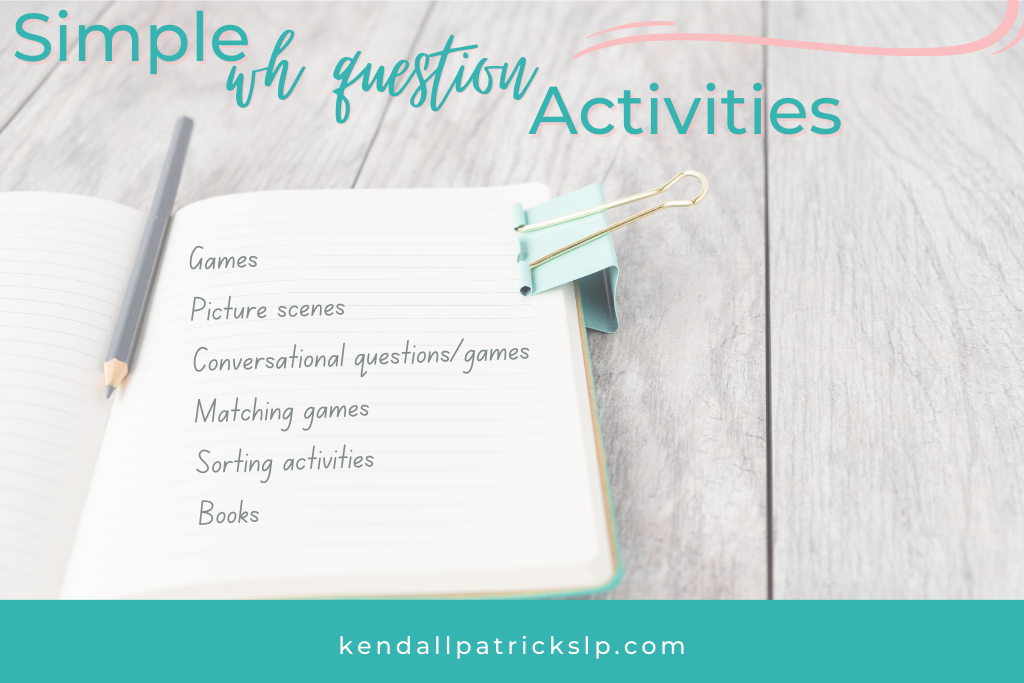
WH Question Strategies
There are a lot of strategies we can use to help our students develop these skills, here are a few of my favorite:
- Using visuals for more complex sentences
- Using manipulatives
- Include modeling to correct and support
- Use conversational style and peer interactions to make more natural
Parent Education for Speech Therapy WH Questions
Here are some of my favorite tips to share families that they can easily use at home.
Guessing Games
Describe something and have your child guess what you are talking about. It’s kind of a play on “I Spy” but it’s more “I’m thinking of…”
Example: “I’m thinking of something that is a vehicle, it goes in the sky, and can hold lots of people. What is it?”
Books
Asking simple WH questions during and after reading the book (e.g., Who was the story about? Where were they? How do you think the character felt? What will they do next? etc).
Driving in the Car
Ask questions about your surroundings (e.g., What lives on a farm? Where do trains travel? Who drives cars? etc).
For a free download that includes all my tips, check out my freebie library and download it today!
(long pin) parent-education-for-speech-therapy-wh-questions
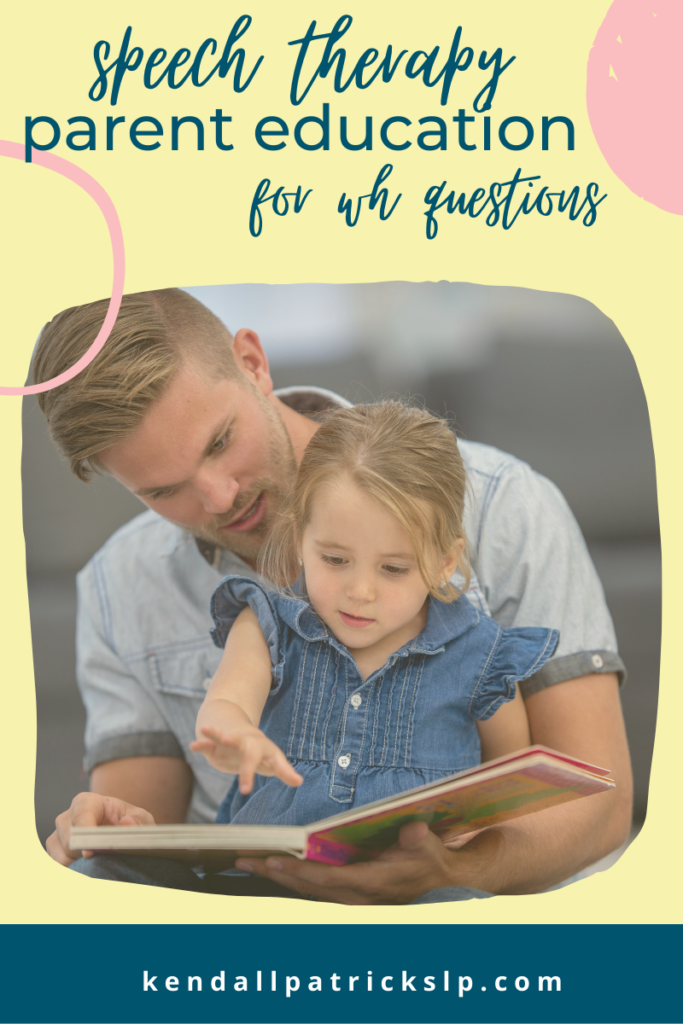
Coloring Pages for Language Goals
My kids love to color so I developed these color by code for language sheets that can be used in mixed groups or any therapy session to target a variety of goals. They come in many different themes and I am creating new ones all the time.
I made a set to target all types of WH questions that you can download for free over in my free resource library. Check it out here.
Long pin when-questions-for-speech-therapy

If you love these coloring sheets, check out my articulation color by code sheets while you’re over in my store too!
For more speech therapy wh questions ideas:
5 ACTIVITIES TO WORK ON WH QUESTIONS IN SPEECH THERAPY from Speechy Musings
WH Questions from Exceptional Speech Therapy
WH Questions Everything You Needed To Know from Speech Therapy Talk
Don’t forget to sign up with your email address here to get access to my free library (growing all the time) full of some of my goodies made exclusively for my followers.
I hope you found some of these ideas helpful and can use one or more in your therapy room. Please leave a comment or shoot me an email if you want to share some of your favorite speech therapy wh questions ideas and activities.

